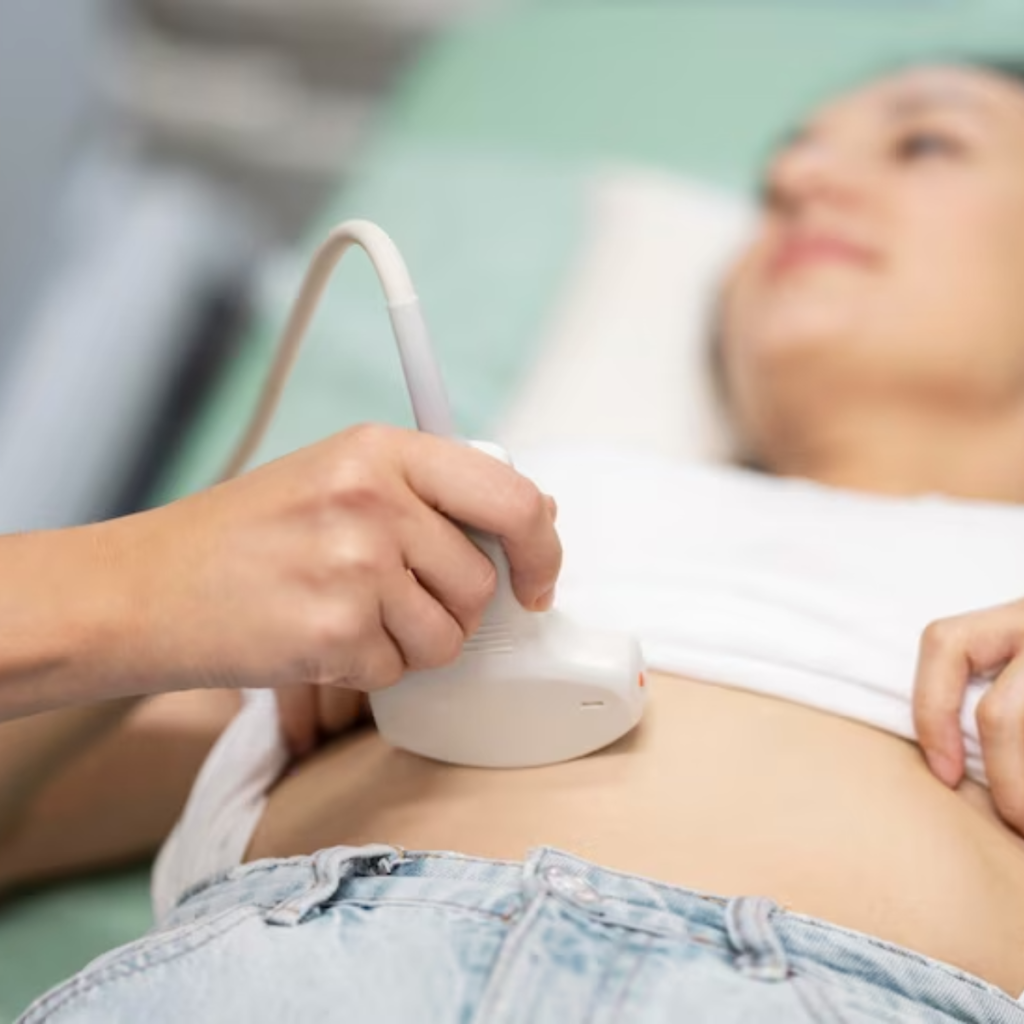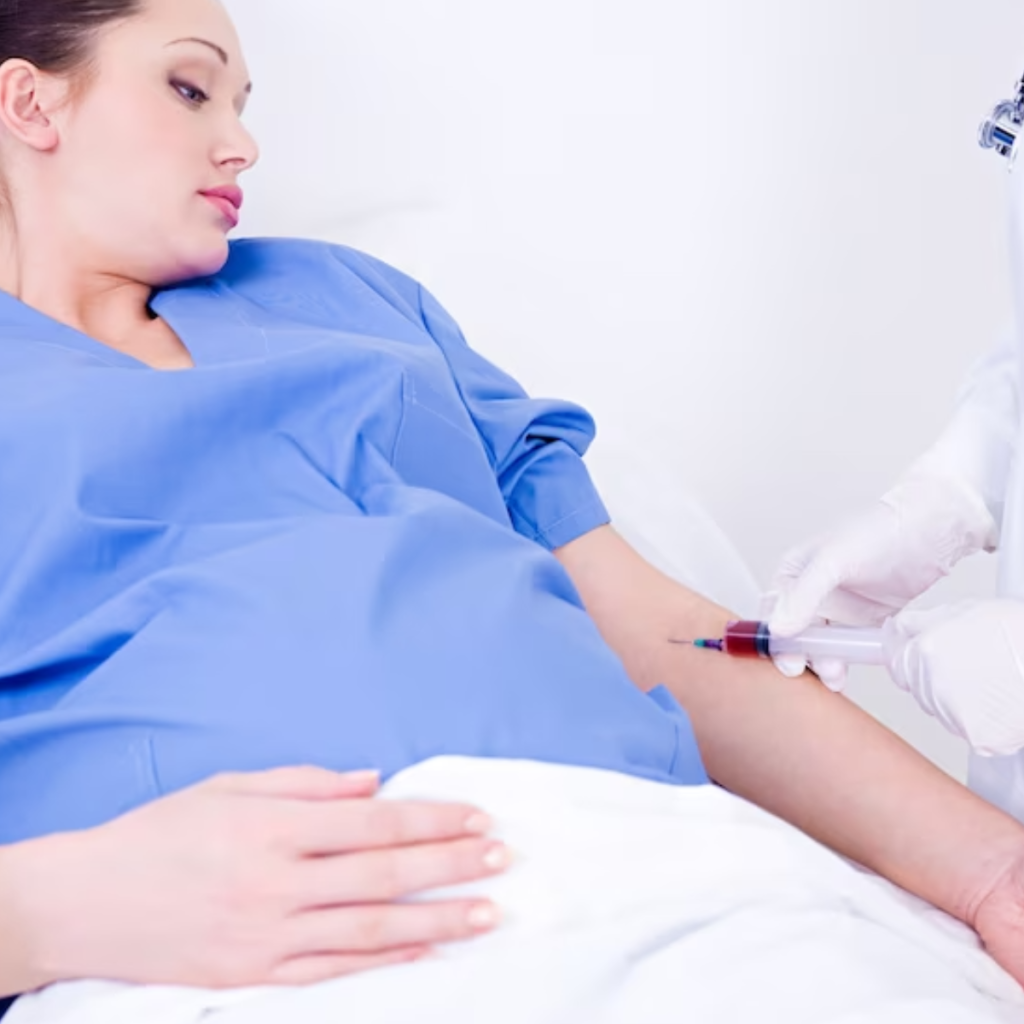Discover the potential benefits of acupuncture for various pregnancy-related symptoms and conditions.
Can Acupuncture Help with Other Pregnancy-Related Symptoms and Conditions?
Pregnancy is an incredibly beautiful and transformative experience, but let’s be honest – it can also be a rollercoaster of strange and uncomfortable symptoms. From morning sickness to back pain, it’s no secret that growing a tiny human inside you can sometimes be a real challenge. But fear not, because an ancient healing practice called acupuncture might just be the secret weapon you’ve been looking for! In this article, we’ll explore how acupuncture works, discuss its potential benefits for common pregnancy-related symptoms and conditions, and delve into the safety considerations when considering acupuncture during pregnancy.

Understanding Acupuncture: An Ancient Healing Practice
Acupuncture has been around for thousands of years, originating in ancient China. Based on the principles of Traditional Chinese Medicine (TCM), acupuncture involves the insertion of thin needles into specific points on the body. According to TCM, the body has a vital life force called Qi that flows through pathways called meridians. By stimulating certain acupuncture points, the flow of Qi can be restored and balanced, promoting health and well-being.
While it may sound a bit like magic, acupuncture has gained recognition and popularity around the world due to its potential to alleviate various physical and emotional ailments. And guess what? Pregnancy-related symptoms and conditions are no exception!
During pregnancy, a woman’s body goes through numerous changes, both physically and hormonally. These changes can often lead to discomfort and various symptoms, such as morning sickness, back pain, fatigue, and mood swings. This is where acupuncture comes in.
The Principles of Acupuncture
Before we get into the nitty-gritty of how acupuncture can help during pregnancy, let’s quickly touch on the fundamental principles underlying this ancient practice. According to TCM, the body is seen as an interconnected system, where each part affects and is affected by the whole. This holistic approach recognizes that imbalances or blockages in the body’s energy flow can lead to symptoms and discomfort.
By stimulating acupuncture points, acupuncturists aim to rebalance the body’s energy flow, allowing for optimal health and well-being. This can be achieved by inserting needles into specific points along the meridians, which correspond to different organs and systems in the body. The needles are typically left in place for a short period, allowing the body to respond and restore balance.
While acupuncture may not be for everyone, many people have reported significant relief from a wide range of symptoms thanks to this ancient healing practice. It is important to note that acupuncture should always be performed by a trained and licensed acupuncturist to ensure safety and effectiveness.
How Acupuncture Works
So, how does sticking needles into your body actually work? Well, it’s believed that acupuncture helps release endorphins – the body’s natural painkillers – along with other neurotransmitters that promote a sense of well-being. Additionally, acupuncture has been found to stimulate blood circulation, relax muscles, and reduce inflammation.
During pregnancy, hormonal changes can wreak havoc on your body, leading to various discomforts. The good news is that acupuncture may help alleviate these symptoms, offering a drug-free alternative to find relief. For example, acupuncture has been shown to reduce nausea and vomiting associated with morning sickness, as well as relieve back pain and pelvic discomfort.
Furthermore, acupuncture can also help with emotional well-being during pregnancy. Hormonal fluctuations can often lead to mood swings and increased stress levels. Acupuncture sessions can provide a calming and relaxing experience, helping to balance emotions and promote a sense of inner peace.
It is important to mention that acupuncture during pregnancy should be performed by a qualified acupuncturist who has experience working with pregnant women. They will take into consideration the specific needs and concerns of the expecting mother, ensuring a safe and effective treatment.
In conclusion, acupuncture is an ancient healing practice that has stood the test of time. Its ability to restore balance and promote well-being has made it a popular choice for many individuals, including pregnant women. By stimulating specific points on the body, acupuncture can help alleviate pregnancy-related symptoms and provide a drug-free alternative for finding relief. If you’re considering acupuncture during pregnancy, be sure to consult with a qualified professional to ensure a safe and beneficial experience.
Pregnancy-Related Symptoms and Conditions
Now that we have a better understanding of acupuncture, let’s dive into the specific symptoms and conditions that commonly arise during pregnancy. From the well-known morning sickness to the oh-so-familiar back pain, we’ll explore how acupuncture may provide some much-needed relief.
Common Pregnancy Symptoms
Morning sickness – or should we say all-day sickness – is often one of the first signs that a woman is expecting. Nausea, vomiting, and an aversion to certain smells can make the early days of pregnancy a real struggle. But fear not, acupuncture might just come to your rescue. Some studies suggest that acupuncture can help reduce the severity of morning sickness. While the evidence is mixed, many women have reported feeling less queasy after a session or two.
In addition to morning sickness, pregnancy can bring about a whole host of other symptoms. Hormonal changes can lead to mood swings, irritability, and even depression. Acupuncture has been shown to have a positive impact on mental health, promoting relaxation and reducing stress. By targeting specific points on the body, acupuncturists can help balance the body’s energy and restore emotional well-being.
Another common symptom that may accompany pregnancy is fatigue. Growing a tiny human is hard work, after all! Acupuncture can help promote relaxation, improve sleep quality, and boost energy levels, making those sleepless nights a tad more bearable. By stimulating certain points, acupuncturists can help regulate the body’s energy flow, revitalizing tired moms-to-be.
Pregnancy Conditions That Cause Discomfort
As your baby bump grows, so does the strain on your back. Many moms-to-be experience back pain, which can range from mild discomfort to debilitating agony. Acupuncture has been found to be a promising option for relieving back pain during pregnancy. By targeting specific points, acupuncturists may help reduce inflammation, release tension, and ease those aching muscles.
In addition to back pain, some pregnant women may also experience pelvic pain or sciatica. These conditions can make everyday activities challenging and take a toll on a woman’s well-being. Acupuncture has been studied as a therapeutic option for these conditions as well, showing promising results in terms of pain reduction and improved mobility. By stimulating the body’s natural healing response, acupuncture can provide relief and enhance the overall quality of life for expectant mothers.
Furthermore, pregnancy can sometimes bring about digestive issues such as heartburn, constipation, and bloating. Acupuncture has been used for centuries to address digestive disorders, and it may offer relief for these discomforts during pregnancy as well. By targeting specific points related to digestion, acupuncturists can help regulate the digestive system and alleviate symptoms.
Additionally, hormonal changes during pregnancy can lead to swelling and fluid retention, particularly in the hands, feet, and ankles. This swelling, known as edema, can be uncomfortable and make it difficult to move around. Acupuncture has been shown to have diuretic effects, helping to reduce fluid retention and promote better circulation. By stimulating certain points, acupuncturists can assist in reducing swelling and restoring comfort.
Acupuncture and Pregnancy: What Does the Research Say?
While countless women swear by the benefits of acupuncture during pregnancy, it’s always wise to turn to research for a more objective perspective. Let’s take a closer look at what the studies have to say about specific pregnancy-related symptoms and conditions.
Acupuncture for Morning Sickness
Research on the effectiveness of acupuncture for morning sickness has yielded mixed results. Some studies suggest that acupuncture may be beneficial in reducing the severity and duration of nausea and vomiting, while others report no significant difference compared to a placebo. However, considering the generally low-risk nature of acupuncture, it may be worth a try if you’re desperate for relief from morning sickness.
Acupuncture for Back Pain During Pregnancy
When it comes to back pain during pregnancy, acupuncture seems to hold promise. Several studies have shown that acupuncture can provide significant relief from back pain, both in the short term and long term. While more research is needed to fully understand how acupuncture works to alleviate back pain, it’s definitely an avenue worth exploring if you’re tired of putting up with the aches and discomforts.
Safety of Acupuncture During Pregnancy
Now, let’s address the big question many pregnant women have – is acupuncture safe during pregnancy? Well, studies have shown that when performed by a qualified and experienced acupuncturist, acupuncture is generally considered safe for pregnant women. However, it’s always crucial to take some precautions and do your due diligence before embarking on an acupuncture journey.

Precautions to Take When Considering Acupuncture
First and foremost, make sure to consult with your healthcare provider before starting any new treatments or therapies during pregnancy. They can provide guidance based on your specific health needs and help you decide if acupuncture would be a suitable option for you.
Additionally, it’s essential to find a certified acupuncturist who has experience in treating pregnant women. This will ensure that you receive safe and effective care throughout your acupuncture journey. Don’t be shy about asking for credentials and inquiring about their training in prenatal acupuncture.
The Process of Acupuncture Treatment During Pregnancy
Curious about what to expect during an acupuncture session? Let’s walk through the process together, so you’ll be well-prepared for your first appointment.
What to Expect During an Acupuncture Session
Your acupuncturist will begin by discussing your medical history and specific concerns related to your pregnancy. This information will help them tailor the treatment to address your individual needs effectively.
Once you’re ready to get started, you’ll be asked to lie down comfortably on a treatment table. Your acupuncturist will then insert thin, sterile needles into specific acupuncture points on your body. Don’t worry – the needles are so thin that you’ll likely only feel a tiny pinch or a mild sensation. Many people find the process quite relaxing and even fall asleep during the session.
Frequency and Duration of Acupuncture Treatments
The frequency and duration of acupuncture treatments during pregnancy can vary depending on your specific condition and needs. In general, it’s recommended to start with weekly sessions and then adjust the frequency as necessary. Your acupuncturist will work with you to develop a treatment plan that best supports your journey to a more comfortable pregnancy.
In Conclusion
If you’re seeking relief from common pregnancy-related symptoms and conditions, acupuncture can be a promising option to explore. From easing morning sickness to soothing back pain, this ancient healing practice has helped countless women navigate the ups and downs of pregnancy.
Just remember to consult with your healthcare provider, find a certified acupuncturist with experience in prenatal care, and approach the process with an open mind. Who knows, acupuncture might just be the key to making your pregnancy journey a little smoother and more enjoyable!



